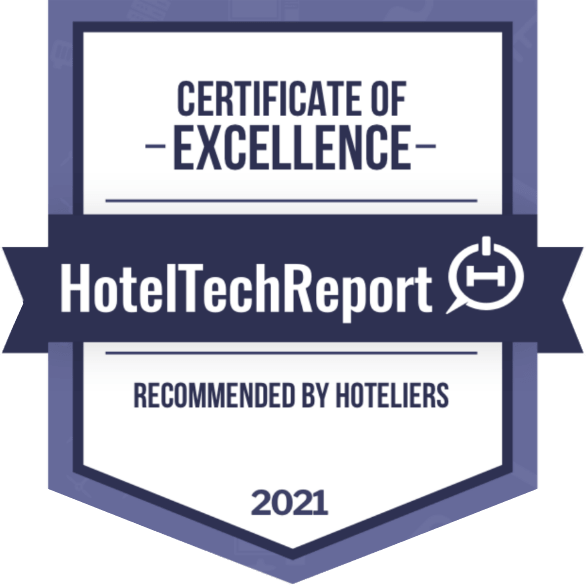Table of Contents
ToggleAt a glance:
Effective hotel operations management is crucial for orchestrating a flawless guest experience in the fast-paced hospitality sector. This intricate process encompasses a plethora of components that intertwine to create a symphony of hospitality. From the moment a guest walks through the doors until their departure, every aspect of their stay is carefully curated through the lenses of hotel operating systems and the adept oversight of a hotel operations manager. Navigating this intricate process demands a keen understanding of both the art and science behind exceptional guest service.
Understanding Hotel Operations Management
Hotel operations management involves overseeing and coordinating all activities within a hotel to ensure its efficient and profitable functioning. It encompasses tasks such as front office operations, housekeeping, food and beverage services, maintenance, sales, marketing and financial management. The goal is to provide excellent guest experiences while maximizing revenue and maintaining cost control. Effective hotel operations management is vital for a hotel’s success, reputation and long-term sustainability in the competitive hospitality industry.
Key Components of Hotel Operations Management
Hotel operations management comprises several key components that work together to ensure the smooth and efficient functioning of a hotel. These components are integral to providing a positive guest experience and achieving financial success:
- Front Office Operations: The front office is the face of the hotel. It handles guest reservations, check-in/check-out processes, and room assignments and provides concierge services. Efficient front office operations are crucial for guest satisfaction as they set the initial impression.
- Housekeeping: Housekeeping is responsible for maintaining the cleanliness and orderliness of guest rooms, public areas, and back-of-house spaces. Clean and well-maintained rooms are essential for guest comfort and safety.
- Food and Beverage Services: This department manages all dining and catering services within the hotel, including restaurants, room service, banquets, and bars. High-quality food and beverage services enhance the overall guest experience and can be a significant revenue generator.
- Maintenance: The maintenance department ensures that all hotel facilities and equipment are in good working condition. Preventive maintenance schedules and swift repairs are essential to prevent service disruptions and ensure guest safety.
- Sales and Marketing: Effective sales and marketing efforts are critical for attracting guests and maximizing revenue. This includes advertising, promotions, pricing strategies and partnerships with travel agencies and online booking platforms.
- Human Resource Management: Managing the hotel’s workforce is essential. This involves recruiting, training, and retaining qualified staff, creating a positive work culture and offering opportunities for career growth.
- Technology Integration: Staying updated with technological advancements is crucial. This includes property management systems (PMS), online booking platforms, customer relationship management (CRM) tools and energy management systems to streamline operations and enhance guest experiences.
- Financial Management: Effective financial management involves budgeting, revenue tracking, cost control and financial reporting. Revenue optimization tools ensure the hotel remains financially viable and can invest in improvements and expansions.
These components collectively form the foundation of hotel operations management. Successful management in each of these areas contributes to a positive guest experience, a strong brand reputation and the hotel’s overall profitability and sustainability in a competitive industry.
Challenges in Hotel Operations Management
Hotel operations management is a complex field with several challenges. Some of these include:
- Staff Training and Turnover: One of the most significant challenges in hotel operations management is recruiting and retaining skilled and motivated staff. The hospitality industry often experiences high turnover rates due to factors such as long hours, demanding guests, and seasonal fluctuations in demand. Constantly training new employees can be costly and impact service quality. Effective human resource management strategies, such as competitive wages, employee benefits, training programs and career growth opportunities, are essential to address this challenge.
- Technology Integration: Keeping up with rapidly evolving technology is another challenge in hotel operations management. Hotels need to integrate and utilize various software systems like property management systems (PMS), point-of-sale (POS) systems, customer relationship management (CRM) tools, and online booking platforms. Ensuring these systems work seamlessly together is essential for smooth operations. Additionally, providing guests with a tech-savvy and connected experience, such as mobile check-ins and keyless entry, is becoming increasingly important.
- Seasonal Demand and Revenue Management: Many hotels face seasonal fluctuations in demand, with peak periods followed by slower periods. Effective revenue management is crucial to optimize room rates, occupancy levels, and overall revenue. Balancing the need to fill rooms during low seasons while maximizing profits during high seasons requires careful planning and dynamic pricing strategies. Failure to do this can result in lost revenue opportunities or overbooking during peak periods.
- Guest Experience and Satisfaction: Last but not least, navigating guest expectations and addressing concerns is a delicate process in the realm of hotel operations management. Effective communication and resolution strategies are pivotal. By actively managing and exceeding guest expectations, operations managers maintain the melody of guest satisfaction. When a problem is resolved swiftly, visitors are 40% more inclined to post favorable evaluations and reviews. Swift response to feedback and a genuine desire to please resonate with guests, turning them into loyal advocates.
To learn more about the power of online reviews for hotels, read this.
Powerful Strategies For Effective Hotel Operations Management
Hotel operations management is a multifaceted discipline that requires a combination of effective strategies to ensure smooth operations, exceptional guest experiences and financial success. Here are some powerful strategies to enhance hotel operations management:
- Guest-Centric Approach: Put guest satisfaction at the forefront of your operations. Train your staff to prioritize guest needs and provide exceptional service. Encourage a culture of empathy and responsiveness to guest feedback and concerns. Personalize guest experiences by remembering their preferences and anticipating their needs.
- Efficient Staff Management: Invest in your employees by providing comprehensive training programs and opportunities for career advancement. Clearly define job roles and responsibilities, and foster a positive work environment that promotes teamwork and employee well-being. Happy and motivated staff are more likely to deliver exceptional service.
- Quality Food and Beverage Services: Ensure that your hotel’s dining options meet high standards. Focus on the quality of ingredients, presentation and service in your restaurants, bars and room service. Offer diverse menus to cater to different tastes and dietary preferences. Consider partnering with local suppliers for fresh, unique offerings.
- Dynamic Pricing and Revenue Management: Implement dynamic pricing strategies that consider factors like demand, seasonality, competitor rates and market conditions. Use revenue management systems and data analytics to optimize room rates, occupancy and revenue. Continuously monitor and adjust pricing strategies to maximize profitability.
- Regular Maintenance and Upkeep: Implement a proactive maintenance schedule to ensure that all facilities and equipment are in good working order. Regularly inspect guest rooms, public areas and back-of-house spaces for wear and tear. Promptly address maintenance issues to prevent disruptions in guest services.
- Effective Technology Integration: Embrace technology to streamline operations. Invest in a robust property management system (PMS) that integrates with other essential tools like point-of-sale (POS) systems, booking engines and customer relationship management (CRM) software. Adopt cloud-based solutions for scalability and flexibility.
- Energy Efficiency and Sustainability: Implement eco-friendly practices to reduce your environmental impact and appeal to environmentally conscious travelers. Invest in energy-efficient lighting, heating, and cooling systems. Reduce water consumption through low-flow fixtures. Source locally and sustainably when possible, and minimize waste through recycling and responsible disposal practices.
- Safety and Security Measures: Prioritize the safety and security of guests and staff. Implement comprehensive safety protocols, including fire safety measures and emergency response plans. Use modern security technology such as surveillance cameras and access control systems. Train staff in emergency procedures and ensure clear communication channels in case of incidents.
- Data-Driven Decision Making: Leverage data analytics to make informed decisions. Analyze guest preferences, booking patterns and spending behaviors to tailor marketing efforts and improve guest experiences. Monitor key performance indicators (KPIs) such as occupancy rates, revenue per available room (RevPAR) and guest satisfaction scores to track your hotel’s performance.
- Community Engagement and Partnerships: Build relationships with local businesses and organizations to enhance the guest experience. Collaborate with local tour operators, restaurants, and attractions to offer exclusive packages and experiences. Engage in community events and initiatives to create a positive image for your hotel.
To learn how AI is revolutionizing the hospitality industry, read this.
Conclusion
As the hospitality industry continues to evolve, the role of an operations manager remains vital in maintaining the harmonious balance that transforms a mere stay into unforgettable memories. By adopting powerful hotel operation management strategies and continuously adapting to changing market dynamics and guest expectations, hotels can achieve long-term success and maintain a competitive edge in the hospitality industry.
About InnQuest
At InnQuest, we understand the importance of the challenges faced by businesses in the hospitality industry. Our goal is not only to help manage your businesses more efficiently but also to provide ongoing support to engender growth and expansion. Book a demonstration of our award-winning hotel management software here.



